Our Research
RESEARCH:
FOR A FUTURE WITHOUT DIABETES
Research is why we exist; the research we fund has a significant and positive impact on the future of diabetes. We support a variety of research endeavours that are achieving real results. From Islet cells to student funding, we are at the leading edge of diabetes research.
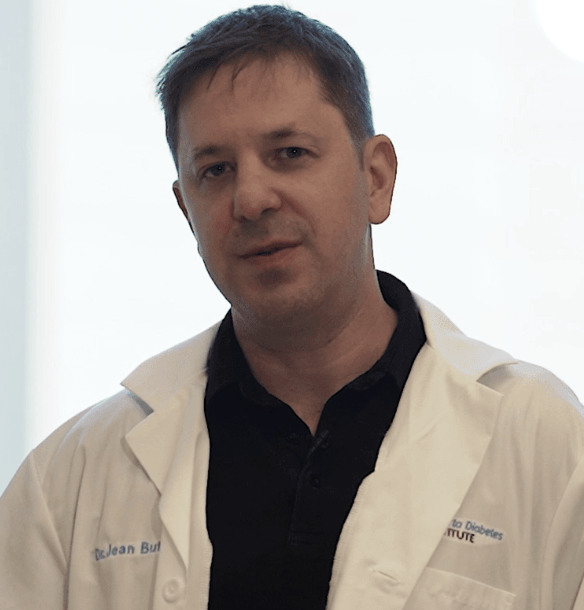
"A novel molecule that has the potential to regenerate beta cell mass and function" - Dr. Jean Buteau
Two important discoveries have added direction and excitement to the research program established by Dr. Jean Buteau. The first discovery is that the majority of people living with Type I Diabetes (T1D) are still generating viable beta-cells to produce very low levels of insulin. The second of these discoveries is that Dr. Buteau has characterized a gene as a novel critical regulator of beta-cell mass.
Work in his lab has proven some truly remarkable things. TID model mice have, through Dr. Buteau’s interventions and this novel molecule already being tested in T2D patients, have increased beta-cell survival and mass development. That has improved the glucose control in these mice with glucagon exposure. In other words, he figured out how T1D mice can beat the disease and create their own insulin.
What’s next for Dr. Buteau? ADF is actively fundraising to fund the next trial that Dr. Buteau would do in humans and the sense of urgency is HUGE! The next step is recruiting the first cohort of 60 participants to test this same molecule over an 18-month period. And then, a much larger and more expensive Phase II Clinical Trial would follow that.
What is wonderfully remarkable about this work and the small molecule that Dr Buteau and his team are working with? It is already in Phase II Clinical Trials in people with T2D and could pave the pathway to through Health Regulatory body approvals, fast-tracking the answer for people with T1D. There is nobody in the world closer to a treatment / cure for people living with diabetes to live insulin free! And the work is happening right here in Alberta!
“Nanomedicines tackle Huge Disease” - Dr. Pere Santamaria
Dr. Santamaria is a world leader in nanomedicine – and his aim is to cure diabetes and indeed, many other autoimmune diseases. This University of Calgary based collaboration will use nanotechnology at a molecular level to tune or switch the immune cells that cause the destruction of the insulin producing beta cells (in an auto-immune attack) into protective immune cells that work to suppress the auto-immune attack. By stopping the attack, those people with T1D can once again regenerate their own beta cells and produce their own insulin; all without the need for anti-rejection medication.
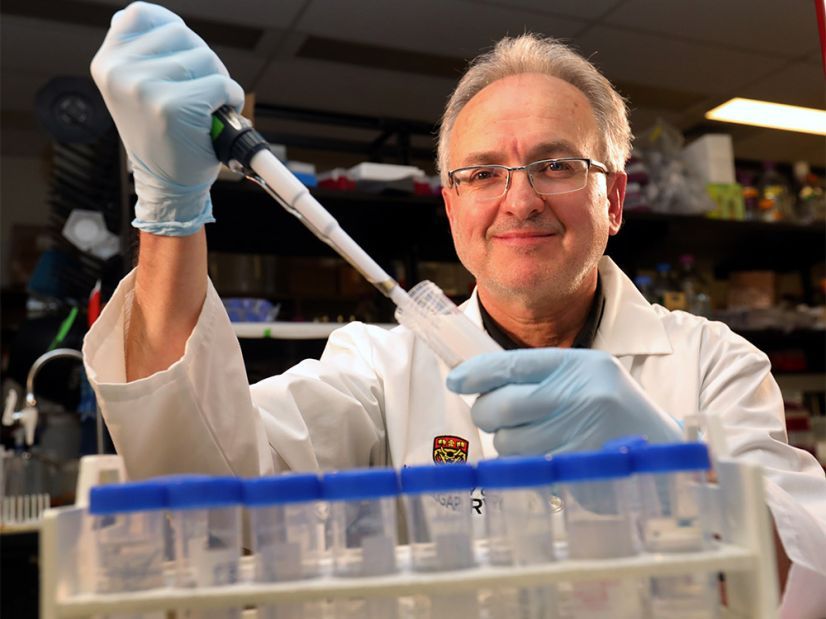
"Results that quick?" - Dr. Jean Buteau & Dr. Gina Rayat
The advancement of science has informed us that people with T1D still continue to produce islets and the insulin producing beta cells within them. However, the auto-immune attack continues to kill off these new healthy cells as they are produced. The goal of this project is insulin producing beta cell preservation and regeneration by inhibiting the mechanisms that destroy those cells. Dr. Buteau and his team are working with a science company already in Phase II clinical trials with a clinical drug focused on treating people with Type 2 Diabetes. Based on compelling preliminary data, they believe that this drug could, with their targeted approach and intervention, be used to assist people with T1D to regenerate their own beta cells and produce enough insulin to live a healthy life – diabetes free! Notably, the fact that they are focusing on an existing clinical drug already in Phase II Trials accelerates the pace of the research and the outcomes.
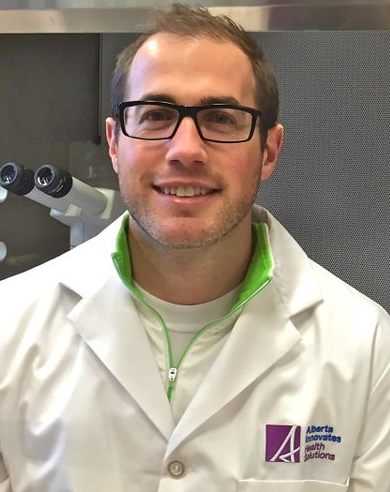
“A Better Version of the Edmonton Protocol” - Dr. Andrew Pepper
One of the major issues with islet transplantation is that close to half of the islets being transplanted are lost within the first few days post-transplant. This means at least two pancreas donors are required for each islet transplantation performed under the Edmonton Protocol.
With all organ transplantation, the “supply” of donor pancreases can be a big hurdle in limiting the number of islet transplants that can be performed. This project will examine one of the mechanisms of islet cell death with the aim of stopping that process. Less islet cell death means less donor pancreases required per transplant which means more people would be able to receive the transplant. Andrew is a brilliant scientist and is the Alberta Diabetes Foundation Research Scholar.
“Body Heal Thyself” - Dr. James Shapiro
This world-class research initiative from the developer of the Edmonton Protocol has the potential to cure diabetes by developing personalized stem-cell based therapies. Dr. Shapiro and his lab aim to re-program stem cells generated from the T1D’s own body into beta cells that are both insulin-producing cells and shielded from the autoimmune attack.
In other words, if successful, the recipient would be cured of diabetes using their own cells! Because this procedure would not require anti-rejection drugs, it could also mean that everyone living with diabetes, including young children, could potentially live an injection-free life. We note that this research is complex and could take years to complete, but the projected result is extraordinary.
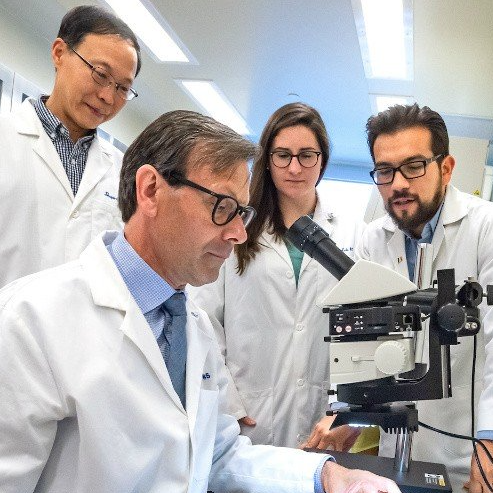
The Alberta Diabetes Institute: A Leader in Diabetes Research
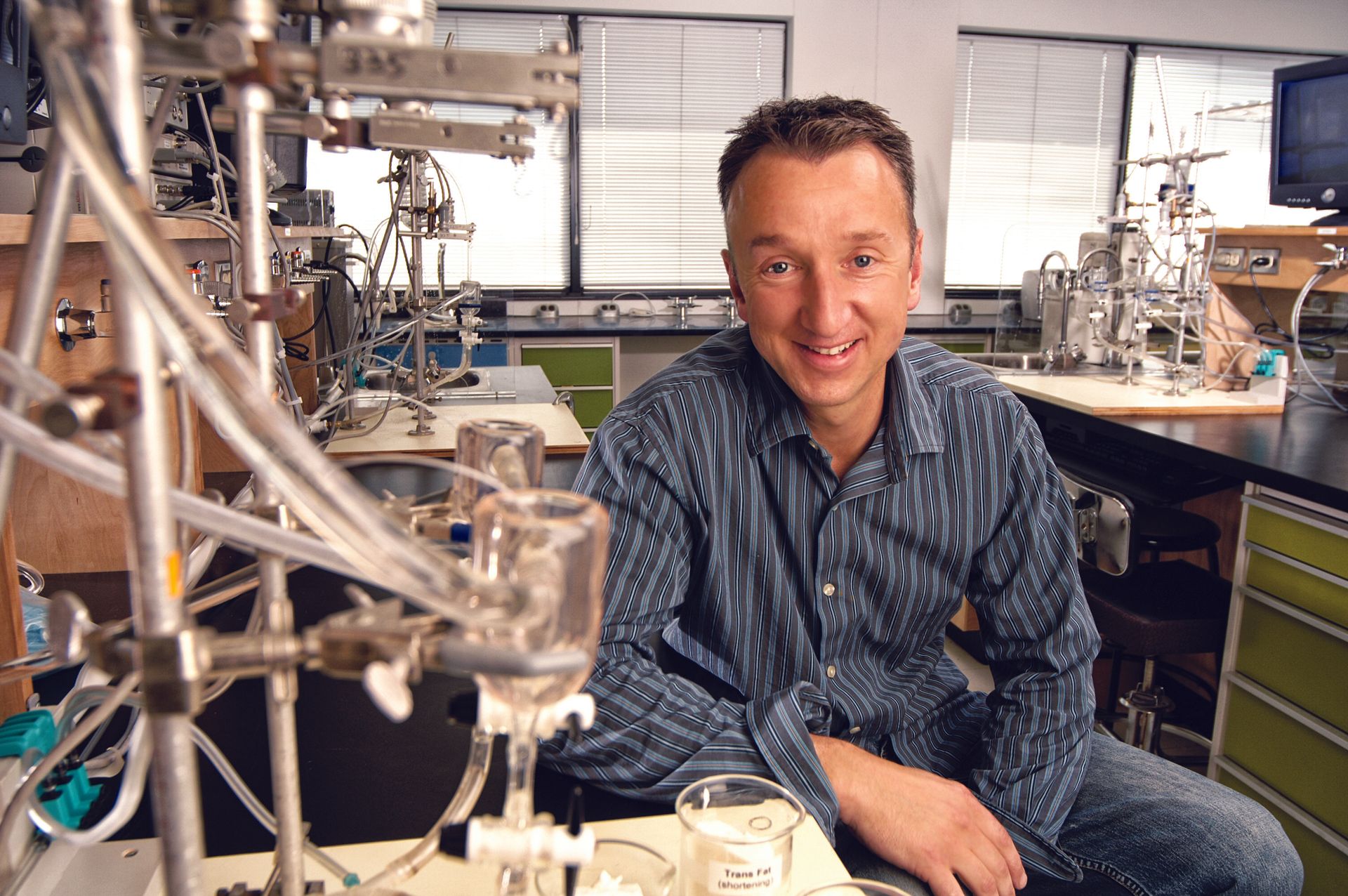
Dr. Peter Light: Alberta Diabetes Institute Director
The Alberta Diabetes Institute (ADI) is a world-class diabetes research facility, unique within Canada. The ADI provides desperately needed research space – all of which is aimed at finding a cure. As a world-class collaborative facility, ADI will attract and retain the very best research scientists and clinicians, while providing a training center for medical and graduate students who will be the leaders of tomorrow.
The 200,000 square foot Institute was established in 2007 as a stand-alone facility to consolidate the University’s outstanding collection of diabetes researchers and their trainees. We at the Alberta Diabetes Foundation support the Institute through research funding and support, so that breakthrough research is not stalled. The Institute offers state-of-the-art facilities in support of research that includes cellular and molecular studies, preclinical/clinical research, population health and health outcomes studies.
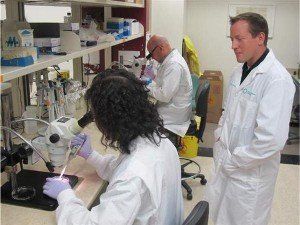
Islet Research: Dimmer Switch Breakthrough
Dr Patrick MacDonald and his team at the Alberta Diabetes Institute IsletCore have made a very important breakthrough in type 2 diabetes. They have identified a new pathway that controls insulin production from pancreatic islet cells.
This pathway acts as the ‘dimmer switch’ to determine how much insulin comes out once these cells are ‘turned on’.
Scientists have been trying to solve the mystery of the ‘dimmer switch’ for over 20 years. They have found that this dimmer switch is broken in the cells of type 2 diabetics but can be fixed so that diabetic cells work the same as healthy cells.
The ability to restore and fix the dimmer switch in islet cells has been proven on a molecular level but the there will be a challenge to translate these findings into clinical use. The Alberta Diabetes Foundation has a 7 year, $100,000 commitment with Dr MacDonald to support his research in this field of study and Dr MacDonald believes the findings show a important new way forward.
Clinical Trials: Participate in a Study
The Alberta Diabetes Institute’s Clinical Research Unit serves as a place where basic and clinical scientists work together to perform studies that incorporate translational research (the process of making research findings benefit patients) resulting in meaningful health outcomes. The Clinical Research Unit, along with skilled researchers and coordinators, will provide a welcoming and proficient setting for participants to volunteer in groundbreaking research studies.
Find out more information on active clinical trials.
Student Fellowships
Supporting the researchers of the future means that new, potentially life-changing diabetes research is being funded. Research proposals were reviewed and applicants were chosen based on a clear project outline with objectives that complement the ongoing research activities of the Supervisor. Awards are for a one-year term.
Find out more information on active clinical trials.
2016 ADI Studentship Awards
Three students were awarded funds worth a total of $52,000 towards their research projects. The students were supervised by Alberta Diabetes Institute members.
Enezi Khalid
Hypothalamic glucocorticoid action in in-vivo glucose metabolism
Supervisor: YUE
Awarded: $25,000
Amina Eshreif
Attenuating skeletal muscle ketone body oxidation to treat obesity-induced insulin resistance
Supervisor: USSHER
Awarded: $25,000
John Kennelly
Altering intestinal phosphatidylcholine synthesis for protection against diet-induced metabolic syndrome
Supervisor: JACOBS
Awarded: $2,000 (Research allowance)
2017 ADI Summer Studentship Awards
Funding worth a total of $28,000 was awarded in support of six summer students who were supervised by Alberta Diabetes Institute members. Research proposals were reviewed and applicants were chosen based on a clear project outline with objectives that complement the ongoing diabetes research activities of the Supervisor.
Alena Frankish
Evaluation and clinical application of a novel bedside tool for the assessment of resting energy expenditure in adults with class ii/iii obesity.
Supervisor: Prado
Awarded: $5600
Frances Sobierajski
The impact of exercise on vascular health during late pregnancy.
Supervisor: Davenport
Awarded: $2800
Hyejun Kim
Regulation of glucose metabolism by glucocorticoid action in the brain.
Supervisor: Yue
Awarded: $5600
Itai Wine
Optimization of the device less transplant site.
Supervisor: Shapiro
Awarded: $5600
Lauren Cormier
Healthy eating and active living with diabetes and gestational diabetes mellitus.
Supervisor: Johnson
Awarded: $5600
Soni Shubham
Assessing the roles of TRPV1 channels and vitamin D in regulating immune T-cell function.
Supervisor: Light
Awarded: $2800
LET'S WORK TOGETHER TO FIND A CURE.
VISIT US
1-020 Li Ka Shing Centre
University of Alberta
Edmonton, AB, T6G 2E1
Office Hours
Monday-Friday 8:30-4:00
If you would like to set up an appointment at our office, please set up an appointment by contacting us at
info@abdiabetes.com
